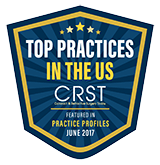Are you considering a vision procedure? Private health insurance, Medicare, and Medicaid cover some vision procedures.
However, they do not cover most elective vision correction procedures. Vision correction procedures like LASIK are considered elective because they are not medically necessary.
But there are some situations where health insurance will cover certain vision correction procedures. Even when these procedures aren’t covered, there are still often ways to pay for surgery through the health benefits you may receive through your employer. Keep reading to find out if insurance can cover vision correction procedures and what that may mean for you.
Procedures That Are Covered
Health insurance typically only covers treatment that’s considered medically necessary. Regarding eye procedures, this usually means that the treatment has to be the only way to prevent or treat vision loss.
One common vision correction procedure insurance covers is cataract surgery. This is because the only way to treat cataracts and restore vision loss from cataracts is through cataract surgery.
Cataract surgery does more than restore vision loss from cataracts. By replacing the natural lens with an intraocular lens, or IOL, patients often achieve better vision after cataract surgery than before the procedure.
However, choosing a premium IOL is the best way to improve vision after cataract surgery. These IOLs are designed to correct refractive errors and presbyopia.
They reduce or eliminate the need for visual aids. However, premium IOLs come with an out-of-pocket cost and aren’t covered by insurance.
Only standard monofocal lenses are covered by insurance, along with cataract surgery. Monofocal IOLs can provide patients with good vision, but they only correct your vision at one distance. You’ll need glasses to see at the uncorrected distance with monofocal IOLs.
Some patients may choose monovision to achieve better vision with monofocal IOLs. Monovision involves putting in an IOL for seeing up close in one eye and then putting an IOL for seeing at a distance in the other eye.
Choosing monovision allows you to see well enough up close and at a distance without relying on visual aids. However, monovision isn’t always suited for everyone.
Besides cataract surgery, most other vision correction procedures aren’t considered medically necessary. There are some exceptions, but vision correction procedures like LASIK typically have to be paid for entirely out-of-pocket.
Procedures That Are Not Covered

Health insurance does not generally cover vision correction procedures like LASIK and other refractive laser eye procedures. These procedures are almost always considered an alternative to contact lenses and glasses.
If you can wear contact lenses or glasses that correct your vision, then procedures like LASIK aren’t considered medically necessary. There are some very rare cases where some patients aren’t able to wear contact lenses or glasses.
Health insurance may cover a vision correction procedure like LASIK in such cases. But these cases are rare exceptions.
In almost all cases, health insurance does not cover LASIK and similar procedures. However, there are still ways to pay for these life-changing procedures that make them affordable.
Vision Insurance Discounts
If you have vision insurance through your employer, it may include a discount for a vision correction procedure. Some vision insurance plans have significant discounts on LASIK.
There may be limitations on where you can undergo one of these procedures with these discounts, but it’s worth looking into exactly what your vision insurance will cover. These discounts may only partially pay for the procedure, but they can help make it much more affordable.
There are also other ways to save when paying for procedures like LASIK.
Other Ways to Pay
Many employers include a Health Savings Account (HSA) or Flexible Savings Account (FSA) as part of their employee’s health benefits package. These funds are taken from your earnings before taxes and can be used to pay for most out-of-pocket medical expenses.
This includes expenses for elective procedures like LASIK and even premium IOLs for cataract surgery. However, knowing if you have an HSA or an FSA is vital, as the accounts differ.

HSAs tend to be a part of insurance plans with high deductibles, and FSAs tend to be part of those with low deductibles. This is because HSAs accumulate more money as the amount put into them rolls over yearly.
But FSAs are different because you must use their funds within a year as the amount of money in them doesn’t roll over. You may get a grace period of a few months into the following year, so you may have time to use your FSA funds to pay for a vision correction procedure!
There are also financing plans that most ophthalmology practices accept or offer to pay for vision correction procedures. These are usually no-interest plans if paid back on time, and they significantly help reduce the cost of a vision correction procedure.
Vision correction procedures can be quite affordable between vision insurance, HSA or FSA funds, and a payment plan. Are you ready to change your life for the better?
Find out if you’re a good LASIK candidate at Williamson Eye Center in Baton Rouge, LA, and schedule a LASIK consultation! What do you have to lose except dependence on visual aids?



